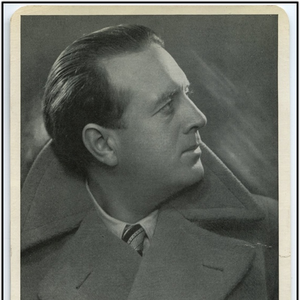
| Trackimage | Playbut | Trackname | Playbut | Trackname |
|---|---|---|---|---|
| 83667549 | Play | Der Barbier Von Bagdad: Ach Das Leid Hab Ich Getragen | 00:00 Tools | |
| 83667550 | Play | Die Meistersinger von Nurnberg: Am Stillen Herd | 00:00 Tools | |
| 83667551 | Play | Martha: Letzte Rose | 00:00 Tools | |
| 83667553 | Play | Oberon: Seit Frühester Jugend Im Kampf Und Streit | 00:00 Tools | |
| 83667552 | Play | Fidelio: Gott, Welch Dunkel Hier | 00:00 Tools | |
| 83667554 | Play | Oberon: Du Der Diese Prüfung Schickt | 00:00 Tools | |
| 83667555 | Play | Die Meistersinger von Nurnberg: Morgenlich Leuchtend: Prize Song Rehearsal | 00:00 Tools | |
| 83667556 | Play | Der Freischutz: Nein, langer trag ich nicht die Qualen | 00:00 Tools | |
| 83667557 | Play | Martha: Mag Der Himmel Euch Vergeben | 00:00 Tools | |
| 83667558 | Play | Die Entführung Aus Dem Serail: Hier Soll Ich Dich Denn Sehen | 00:00 Tools | |
| 83667559 | Play | Lohengrin: In Fernem Land | 00:00 Tools | |
| 83667560 | Play | Lohengrin: Mein Lieber Schwan | 00:00 Tools | |
| 83667561 | Play | Die Meistersinger von Nurnberg: Selig wie die Sonne | 00:00 Tools | |
| 83667562 | Play | Die Zauberflöte: Dies Bildnis Ist Bezaubernd Schön | 00:00 Tools | |
| 83667563 | Play | Martha: Ach So Fromm | 00:00 Tools | |
| 83667564 | Play | Der Barbier Von Bagdad: O Holdes Bild In Engelsschöne | 00:00 Tools | |
| 83667566 | Play | Immerzu singt mein Herz | 00:00 Tools | |
| 83667565 | Play | Lohengrin: "In fernem Land" | 00:00 Tools | |
| 83667567 | Play | Die Zauberflöte: Dies Bildnis ist bezaubernd schoen | 00:00 Tools | |
| 83667568 | Play | Der Troubadour: Hab Erbarmen, O Herr, Mit Einer Seele | 00:00 Tools | |
| 83667569 | Play | Euren König (Königsballade) | 00:00 Tools | |
| 83667570 | Play | Nadja, arme süße Nadja (Iwan Tarassenko) | 00:00 Tools | |
| 83667571 | Play | Der Postillon Von Lonjumeau: Freuude, Vernehmet Die Gescjichte | 00:00 Tools | |
| 83667573 | Play | Die WeiBe Dame: Komm, O Holde Dame | 00:00 Tools | |
| 83667572 | Play | Carmen: Hier An Dem Herzen Treu Geborgen | 00:00 Tools | |
| 90272593 | Play | Frag Nicht, Warum Ich Gehe | 00:00 Tools |

-
- 2,696
- plays
-
- 753
- listners
-
- 2696
- top track count
Helge Rosvaenge (Roswaenge, Rosvænge), Helge Anton Rosenvinge Hansen, (August 29, 1897 – June 17, 1972) was a famous Danish operatic tenor whose career was centred on Germany and Austria, before, during and after World War II. Rosvaenge was born in Copenhagen. He made his debut at Neustrelitz as Don Jose in Carmen in 1921. Engagements followed at Altenburg, Basle, Cologne (1927-30) and the Berlin State Opera, where he was leading tenor from 1930 to 1944, being especially distinguished in the Italian repertory. He sang regularly, too, at the Vienna State Opera (from 1936) and in Munich. Rosvaenge also appeared at the Salzburg Festival, making his debut there in Der Rosenkavalier. Other roles which he performed at Salzburg between 1933 and 1939 were Tamino in Die Zauberflöte, Huon in Oberon and Florestan in Fidelio. His London debut at the Royal Opera House, Covent Garden, occurred in 1938, as Florestan. Rosvaenge sang Parsifal at the Bayreuth Festival in 1934 and 1936 but otherwise avoided the Wagnerian repertory, except on recordings. After World War II Rosvaenge divided his time between Berlin and Vienna. He continued to sing until May 30, 1959 (when he gave what was billed as his farewell concert at Vienna's Great Musikvereinsaal), appearing as Calaf, Radames and Manrico. His voice showed little sign of age; it was still warm and sonorous throughout its range, and brilliant and lustrous in its upper register. Indeed, Rosvaenge, could deliver an easy and full-blooded high D during his vocal prime. Rosvaenge appeared in a wide spectrum of roles ranging from Mozart to Weber, from Verdi to Puccini. He sang with "a steely voice, brilliant high notes and insistent declamation throughout its scale" which was "brilliant and lustrous in its top register", according to Luiz Eduardo Goncalves Gabarra. Rosvaenge was equally impressive as Andrea Chénier and was also an acclaimed and exciting Radames and Otello: he was often heard in this latter role on German radio. Rosvaenge conducted a tour of the USA prior to his retirement. He died in Munich, aged 74. Read more on Last.fm. User-contributed text is available under the Creative Commons By-SA License; additional terms may apply.